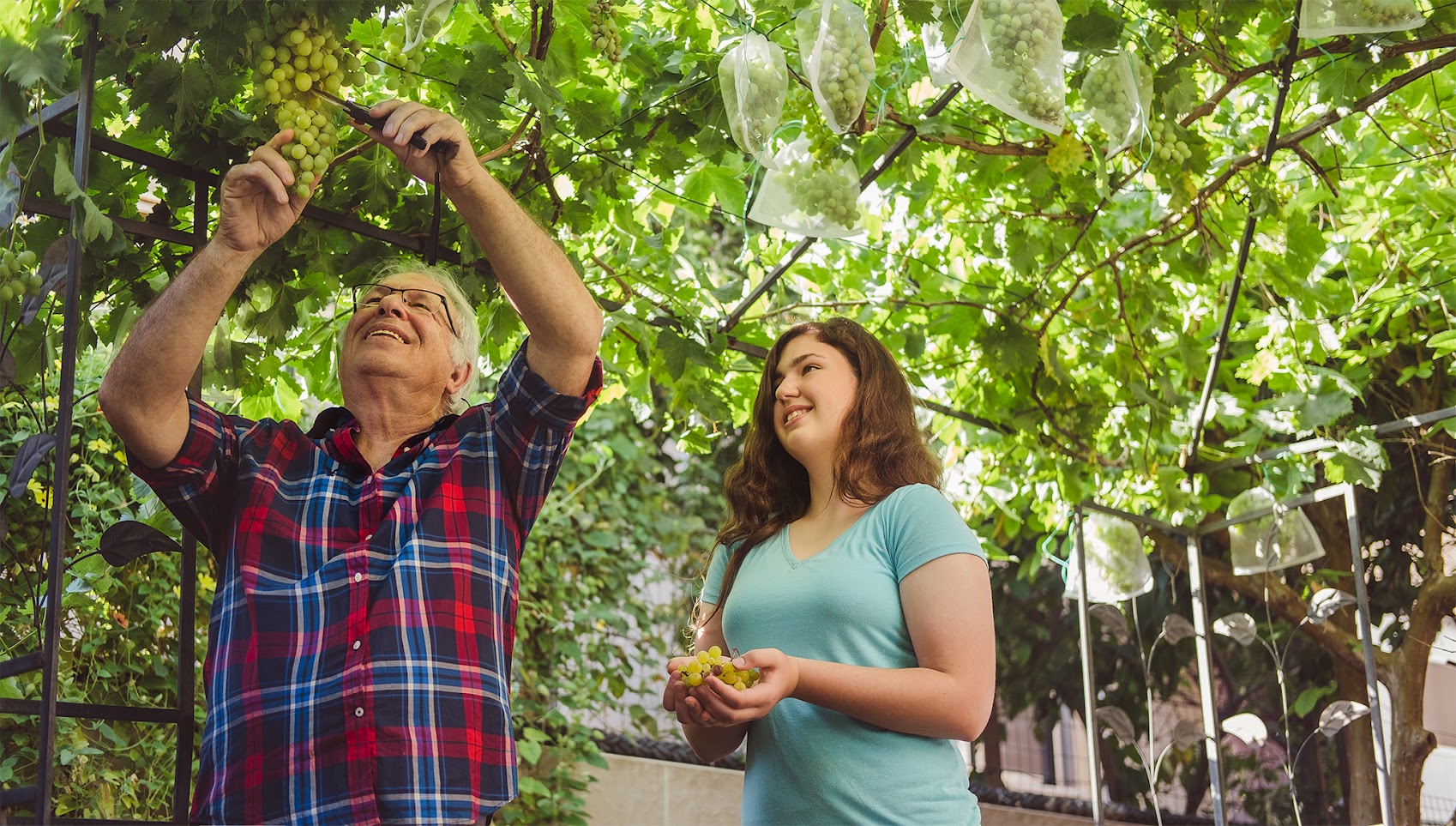Activities and Engagement for People with Mild Dementia
The first stage of dementia is the mild stage, which usually persists for an average of two to four years. At this stage, patients still maintain a reasonable level of independent functioning.
Introducing tools during the early stages of dementia and incorporating them into daily life can have a positive impact on both the quality of life of patients and of family members and caregivers.
Encouraging independence in everyday life
As individuals with dementia face challenges in everyday activities, caregivers tend to become more inclined to assist them and strive to enhance their quality of life. However, at this point It is important to remember that family members and caregivers aim to help patients be active and independent for as long as possible and according to their abilities. Therefore, when a patient struggles to perform daily life activities, it is advisable to try and help them find ways to perform their tasks, rather than do these tasks for them.
For instance, if a patient struggles to make coffee, there are several ways to help:
-
Accompany the patient to the kitchen and offer help
-
Prepare and arrange the essential coffee-making ingredients in a convenient and reachable area
-
Provide instructions to the individual on how to prepare coffee
-
Direct the person towards the required ingredients by guiding them to the cupboard and refrigerator
-
Help them lift the cattle and pour the water
Going outdoors for individuals with mild dementia
During the early stages of the disease, it is advisable to ask the person with dementia to identify the places they are accustomed to visiting and accompany them on their walking routes. For instance, while walking together, you can point out landmarks like trees, stores, benches, and other road signs that can aid in orientation. Additionally, documenting these locations in a notebook can provide further assistance.
Behavioral interventions in early stages of the disease
Seeking advice from occupational therapists is recommended when it comes to behavioral interventions and facilitating activities. It is crucial to approach these activities with respect and create a pleasant experience for the patient, while tailoring them to their specific needs, abilities, and personal limitations.
Cognitive interventions
For example:
- Utilizing writing tools to create reminders is a beneficial approach, such as a large calendar, a notepad for writing messages, etc.
- Maintaining a consistent designated spot for essential items like keys, glasses, and wallet is crucial for establishing a sense of certainty in the patient's surroundings
- It is advisable to prominently display a note containing the phone numbers of the patient's family members and important contacts in a visible location
- It is advisable to place visible reminders throughout the house for essential tasks, such as "check the gas is off" or "check the door is locked.”
- Integrate cognitive training activities into daily routines, such as reading the newspaper and engaging in discussions about current issues.
Activities for preserving long-term memory
Among individuals with dementia, long-term memory is typically less affected compared to short-term memory. Utilizing this long-term memory ability can be valuable in aiding the person to remember different aspects of their past.
Sample activities:
- Engage in conversations that focus on the past: Reminiscing about past events and the individuals who were significant in different stages of their life
- Writing memories: An effective way to preserve memories while also providing a cherished souvenir for children and grandchildren. Help the patient write their memories in a notebook or type for them
- Arranging photos into albums: You can look at photos together and reminisce about events and people depicted in these photos. It is recommended to write down the details given by the person with dementia, as they will serve you at a later stage of the disease
- Searching information on the internet: Search for information about past events that the patient remembers, such as a royal wedding or a well-known political event
- Listen to music and watch cinema movies
Advice for families and caregivers
- Independence: To uphold a patient's independence and foster a sense of security, assist them in acquiring the necessary skills that promote living as independently as possible
- Communication: It is crucial to cultivate communication skills that demonstrate respect and sensitivity
- Sensitivity: Avoid reprimanding or reacting with panic (such as saying, "you have forgotten again!”)
- Respect: It is highly advisable to avoid embarrassing the patient and subjecting them to tests (such as saying, “who am I?”) whether in their presence alone or in the presence of others
- Information: it is advisable to provide information that will help the patient organize their memory
- Daily routine: To provide individuals with dementia with a sense of certainty, maintain a daily routine with regular anchors. For example, make phone calls at regular hours
- Positive reinforcements: It is essential to send a positive message emphasizing remaining abilities and skills, rather than focusing on lost abilities
If any doubts or questions arise while providing care for an individual with dementia, it is recommended to seek consultation from geriatric teams at community clinics, including occupational therapists.











